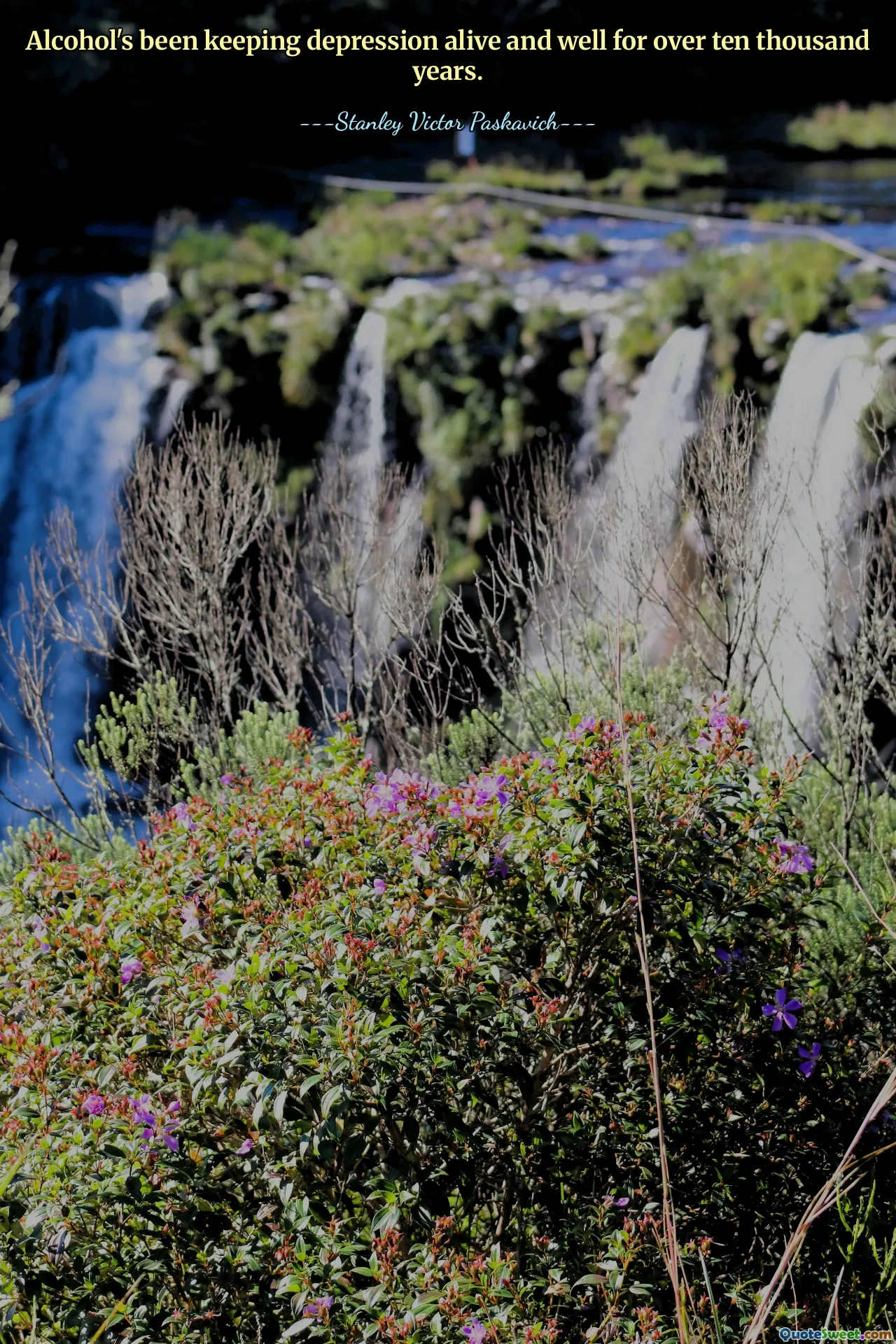
Alcohol's been keeping depression alive and well for over ten thousand years.
Throughout human history, alcohol has played a complex role in society. While it is often associated with celebration, relaxation, and social bonding, it also has a darker side—being linked to addiction, mental health struggles, and social issues. The quote highlights a sobering reality: for millennia, the consumption of alcohol has not only been prevalent but may have inadvertently perpetuated emotional disorders such as depression. This dual nature of alcohol reflects its impact on the psyche. On one hand, it can temporarily mask feelings of sadness or despair, providing a fleeting sense of relief or euphoria. On the other hand, reliance on alcohol as a coping mechanism can deepen depressive symptoms over time, creating a vicious cycle. Historically, civilizations have used alcohol for medicinal, religious, and social practices, yet the long-term psychological costs have often been overlooked. Today, mental health awareness emphasizes the importance of healthy coping strategies, seeing substance use as potentially harmful rather than therapeutic. The enduring connection between alcohol and depression underscores the importance of understanding our relationship with substances—appreciating their cultural significance while acknowledging their potential to harm. Recognizing how substances like alcohol influence mental health could lead to more compassionate approaches to treatment and prevention, emphasizing emotional resilience and healthy outlets for distress.











